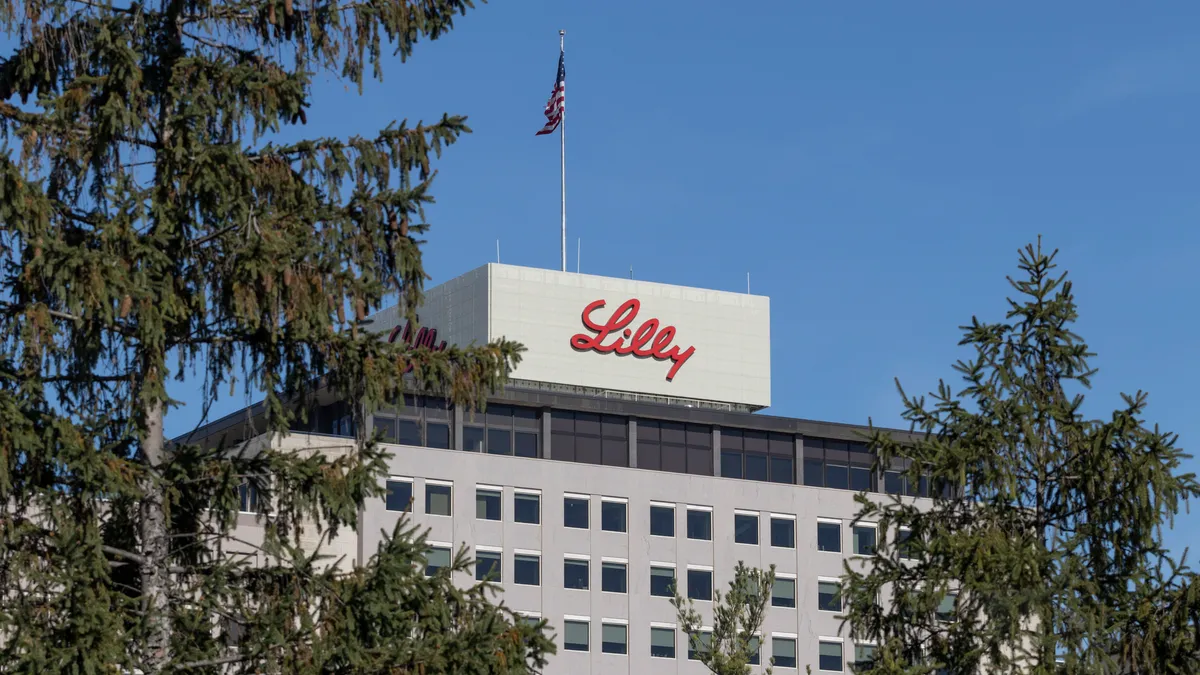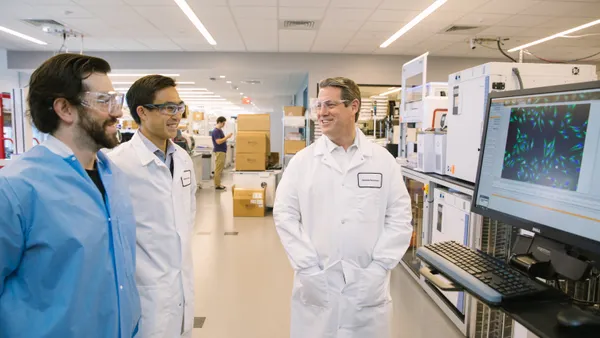Dive Brief:
- Eli Lilly and Insitro said they have entered into three drug development deals that offer a “new paradigm” for collaborations between major pharmaceutical companies and smaller biotechs.
- Insitro, which specializes in applying machine learning to drug discovery, will get an option to license delivery technology from Lilly as part of the first two agreements. The third pact lays the groundwork for Lilly and Insitro to work together to discover a metabolic disease treatment.
- The alliance allows Insitro to retain full global rights to all of its research programs, while Lilly will be eligible for payments for reaching certain milestones. Lilly may also receive royalties from products that win regulatory approval, Insitro said Wednesday. Insitro will be working with Lilly Catalyze 360, a unit designed to collaborate with biotechs.
Dive Insight:
The deal highlights the growing importance of artificial intelligence in drug discovery. The announcement arrived on the same day that three scientists won the Nobel Prize in Chemistry for their work with computational protein design and an AI model that predicts protein structure.
Insitro integrates machine learning with data from human and cellular research, coming up with new genetic targets and hypotheses for treatments. Its technology has drawn interest around the pharmaceutical industry; in recent years, it’s inked development deals with both Gilead and Bristol Myers Squibb.
The Lilly alliance focuses on metabolic diseases, including metabolic dysfunction-associated steatotic liver disease. Insitro plans to combine Lilly’s “GalNAc” delivery technology with two different small interfering ribonucleic acid, or siRNA, molecules Insitro developed to target the liver. The company will also collaborate with Lilly on preclinical work to develop an antibody for a third metabolic target.
AI proponents tout its tremendous promise to find better drug candidates more quickly and cheaply, potentially accelerating the discovery process. And companies such as Nvidia and Recursion Pharmaceuticals have been priming investors to rethink traditional research models.
But AI-discovered medicines still need to be proven in clinical trials, which remain expensive and time-consuming. Recursion’s first big readout from a mid-stage trial yielded mixed results. The study showed its lead experimental drug is safe but provided little information on effectiveness, prompting a drop in the company’s stock price.
Insitro said its agreements with Lilly will support research that could lead to human trials for its first set of programs. In addition to metabolic diseases, the company is also working in neurodegeneration and oncology.













